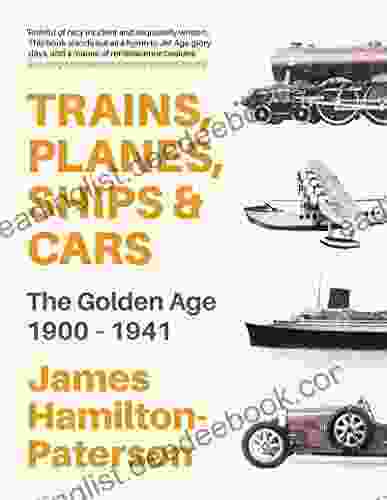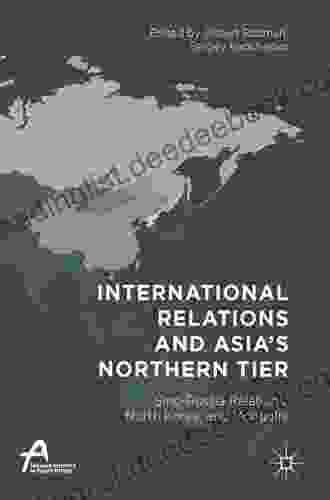International Relations and the Asia Northern Tier: An Enduring and Complex Interplay

5 out of 5
| Language | : | English |
| File size | : | 1178 KB |
| Text-to-Speech | : | Enabled |
| Screen Reader | : | Supported |
| Enhanced typesetting | : | Enabled |
| Word Wise | : | Enabled |
| Print length | : | 334 pages |
The Asia Northern Tier, stretching from the Caspian Sea in the west to the Pacific Ocean in the east, encompasses a diverse array of countries with rich histories, cultures, and political systems. This region, which includes Central Asia (Kazakhstan, Kyrgyzstan, Tajikistan, Turkmenistan, and Uzbekistan) and the Caucasus (Armenia, Azerbaijan, and Georgia),has long been a focal point of international relations due to its strategic location and abundant natural resources.
The interplay between the Asia Northern Tier and global powers has been complex and ever-evolving, shaped by historical, economic, and geopolitical factors. This article explores the key dynamics of this relationship, examining how the region's strategic importance, energy wealth, and geopolitical sensitivities have influenced its relations with major international actors, particularly Russia, China, and the United States.
Historical Context
The Asia Northern Tier has been a crossroads of civilizations for centuries, with empires and trade routes traversing the region. The Silk Road, a network of interconnected trade routes that spanned from China to Europe, played a pivotal role in shaping the economic and cultural landscape of the region. The Great Game, a geopolitical rivalry between the Russian and British empires in the 19th and early 20th centuries, left a lasting impact on the region's borders and political alignments.
The legacy of Soviet rule in Central Asia and the Caucasus continues to influence international relations in the region. The Soviet Union's economic integration and political control over these territories shaped their economies, infrastructure, and political systems. After the collapse of the Soviet Union in 1991, the newly independent states of the Asia Northern Tier found themselves at a crossroads, seeking to define their identities and navigate a rapidly changing international landscape.
Strategic Importance
The Asia Northern Tier's strategic location at the crossroads of Europe and Asia has made it a key transit route for energy, trade, and military movements. The region's proximity to major energy producers, such as Russia and the Caspian Sea nations, has made it a hub for energy transportation pipelines and a potential source of alternative energy supplies for global markets.
The region's strategic importance has also led to a heightened level of military engagement by global powers. Russia maintains a significant military presence in the region, particularly in Central Asia, through bilateral agreements and the Collective Security Treaty Organization (CSTO),a military alliance of former Soviet states. China has also expanded its military footprint in the region, establishing military bases in Tajikistan and conducting joint military exercises with regional states. The United States has also maintained a military presence in the region, particularly in Afghanistan and Iraq, and has been involved in training and equipping local security forces.
Energy Wealth
The Asia Northern Tier is home to vast reserves of oil, natural gas, and other natural resources. The Caspian Sea region is particularly rich in hydrocarbons, with proven reserves estimated to be among the largest in the world. These energy resources have attracted significant interest from global energy companies and have become a key factor in the region's international relations.
Russia and China have been particularly active in securing access to the region's energy resources. Russia has long-standing energy ties with Central Asian states and has constructed a network of pipelines to transport natural gas and oil to its domestic market and to Europe. China, seeking to diversify its energy supply and reduce its dependence on Middle Eastern oil, has made significant investments in energy projects in Central Asia and has built a pipeline to transport natural gas from Turkmenistan to China.
The competition for energy resources in the Asia Northern Tier has also raised concerns about the region's stability and security. Energy disputes between regional states and external powers have the potential to escalate tensions and undermine regional cooperation.
Geopolitical Sensitivities
The Asia Northern Tier is a region of geopolitical sensitivities, with multiple actors seeking to assert their influence and protect their interests. Russia, as the region's traditional hegemon, has sought to maintain its influence in Central Asia and the Caucasus, particularly in the face of growing Chinese and Western presence. China, with its expanding economic and military power, has become a major player in the region, seeking to expand its economic ties and secure access to energy resources. The United States, concerned about the region's stability and potential for conflict, has also been involved in the region, providing political, economic, and military support to regional states.
The interplay between these major powers has created a complex web of relationships and competing interests. Regional states, seeking to balance the demands of different external actors, have often adopted a policy of multi-alignment, seeking to maintain good relations with all major powers while preserving their own sovereignty.
Regional Cooperation
Despite the region's geopolitical sensitivities, there have been efforts to promote regional cooperation and address common challenges. Regional organizations, such as the Shanghai Cooperation Organization (SCO) and the Eurasian Economic Union (EAEU),have been established to foster economic cooperation, security, and stability in
5 out of 5
| Language | : | English |
| File size | : | 1178 KB |
| Text-to-Speech | : | Enabled |
| Screen Reader | : | Supported |
| Enhanced typesetting | : | Enabled |
| Word Wise | : | Enabled |
| Print length | : | 334 pages |
Do you want to contribute by writing guest posts on this blog?
Please contact us and send us a resume of previous articles that you have written.
 Novel
Novel Page
Page Reader
Reader Paperback
Paperback E-book
E-book Magazine
Magazine Newspaper
Newspaper Sentence
Sentence Bookmark
Bookmark Shelf
Shelf Glossary
Glossary Bibliography
Bibliography Preface
Preface Footnote
Footnote Manuscript
Manuscript Scroll
Scroll Library card
Library card Narrative
Narrative Autobiography
Autobiography Memoir
Memoir Reference
Reference Dictionary
Dictionary Character
Character Resolution
Resolution Librarian
Librarian Catalog
Catalog Card Catalog
Card Catalog Borrowing
Borrowing Stacks
Stacks Periodicals
Periodicals Study
Study Lending
Lending Journals
Journals Reading Room
Reading Room Rare Books
Rare Books Literacy
Literacy Thesis
Thesis Dissertation
Dissertation Awards
Awards Theory
Theory Mark Abel
Mark Abel Rachel Roden
Rachel Roden Jonathan Wordsworth
Jonathan Wordsworth Robert Grundstein
Robert Grundstein Denise Hunter
Denise Hunter Gustave Le Bon
Gustave Le Bon Indro Neri
Indro Neri Kimberly Rae
Kimberly Rae Ellen G White
Ellen G White Nicholas Sansbury Smith
Nicholas Sansbury Smith Ani Akpan
Ani Akpan Adam Boxer
Adam Boxer Laurel Geiss
Laurel Geiss Chris Ferrie
Chris Ferrie Pam Durban
Pam Durban Mark Cotta Vaz
Mark Cotta Vaz George W Robinson
George W Robinson Lynn R Kahle
Lynn R Kahle Audrey Wang
Audrey Wang Joe Wiebe
Joe Wiebe
Light bulbAdvertise smarter! Our strategic ad space ensures maximum exposure. Reserve your spot today!

 Dashawn HayesThe Ultimate Guide for Young Investment Professionals: Navigating the Dynamic...
Dashawn HayesThe Ultimate Guide for Young Investment Professionals: Navigating the Dynamic...
 Isaiah PowellExploring the Enchanting Sicilian Medley Woodwind Quartet: A Deep Dive into...
Isaiah PowellExploring the Enchanting Sicilian Medley Woodwind Quartet: A Deep Dive into... Jeremy MitchellFollow ·18.5k
Jeremy MitchellFollow ·18.5k Tennessee WilliamsFollow ·4.4k
Tennessee WilliamsFollow ·4.4k Scott ParkerFollow ·9.4k
Scott ParkerFollow ·9.4k Harrison BlairFollow ·9.6k
Harrison BlairFollow ·9.6k Dan HendersonFollow ·13.3k
Dan HendersonFollow ·13.3k James HayesFollow ·19.6k
James HayesFollow ·19.6k Dalton FosterFollow ·4.9k
Dalton FosterFollow ·4.9k Francis TurnerFollow ·4k
Francis TurnerFollow ·4k

 Diego Blair
Diego BlairUnveiling Hidden Crete: A Comprehensive Review of Richard...
In the tapestry of travel literature,...

 Earl Williams
Earl WilliamsNew Addition Subtraction Games Flashcards For Ages Year
Looking for a fun...

 Julio Ramón Ribeyro
Julio Ramón RibeyroUnveiling the Nexus of Educational Politics and Social...
Education, a fundamental pillar of society,...

 Jordan Blair
Jordan BlairTrains, Planes, Ships, and Cars: The Evolution of...
Transportation...

 Derek Bell
Derek BellFalling for Rachel Stanislaki: An Unforgettable Literary...
Step into the...

 Harry Cook
Harry CookAn Introduction to Cardiac Surgery for Anesthesia...
Cardiac surgery is a specialized...
5 out of 5
| Language | : | English |
| File size | : | 1178 KB |
| Text-to-Speech | : | Enabled |
| Screen Reader | : | Supported |
| Enhanced typesetting | : | Enabled |
| Word Wise | : | Enabled |
| Print length | : | 334 pages |








